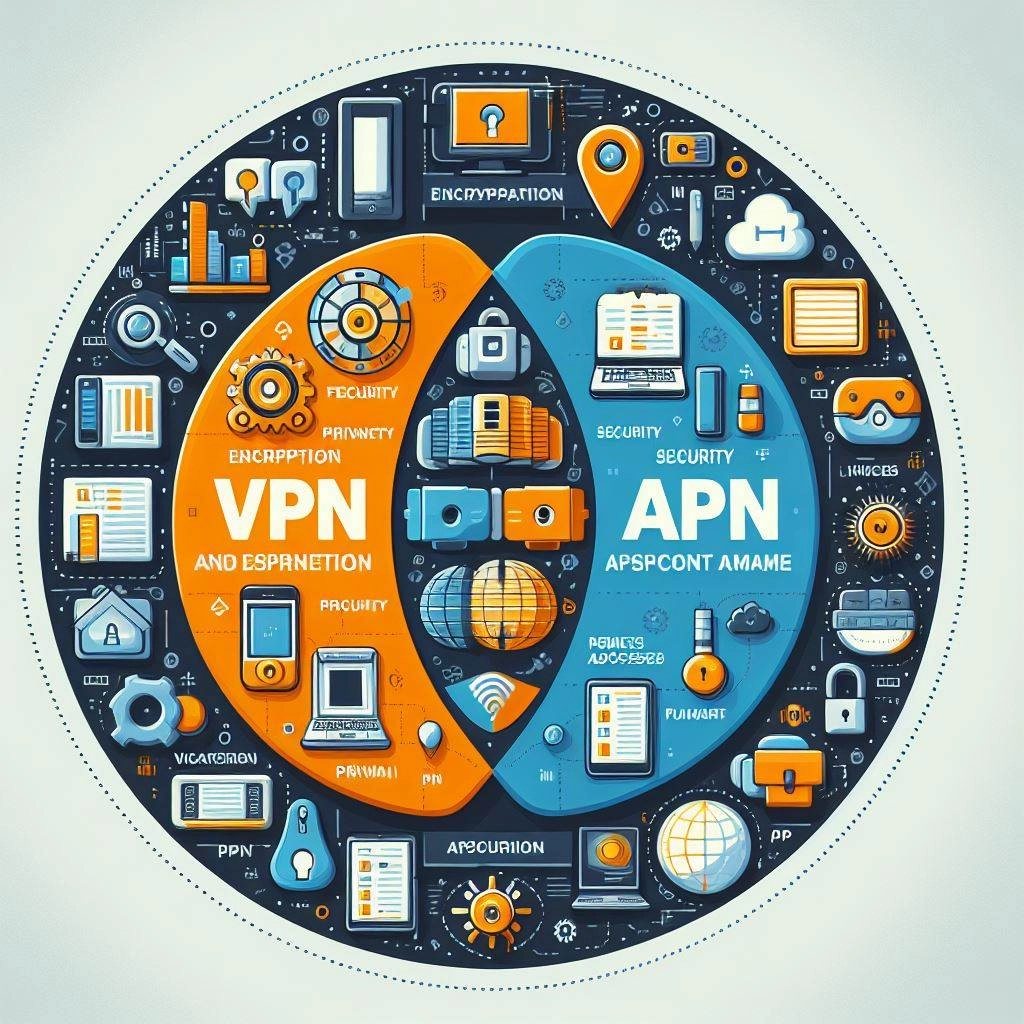VPN and APN: how they are similar and how they differ

In the modern world, mobile devices have become an integral part of our daily lives. And so that they can be in constant connection with the Internet or other computer networks, a special mechanism for setting them up is required. This mechanism is called Access Point Name, abbreviated as APN.
And to make this connection secure and private, there is VPN technology, which adds an extra layer of security. What is a VPN, how is it useful for users and how to choose it for specific needs – all this information can be found in articles about VPN. Thus, using APN and VPN together allows users to not only connect to the network securely, but also ensure the privacy of their online activities.
More details about APN: essence, advantages, nuances of work
APN — This is a set of settings that allows your mobile phone to connect to the Internet or another network. It consists of a set of rules that your mobile operator must know in order for your device to establish a wireless connection. If you have the ability to configure the APN as you wish, you control the level of security, which allows you to determine the degree of protection of your wireless network.
Using APN, the user receives:
- Reliable connection that provides stable communication for sending messages, calling and using the Internet.
- Compatible with various devices and operating systems, which makes it convenient for use on different devices.
- Secure connection, which provides secure communication between your device and your provider's network.
- High-speed Internet access that allows you to quickly browse websites, stream videos and download content.
- Customize different plans with different data usage limits and prices to suit each user's individual needs.
There are also some disadvantages of using APN:
- Limited coverage, especially noticeable in remote areas or where the signal is weak.
- The high cost of APN plans compared to alternative Internet connection options.
- Restricted access to certain websites or services, which may limit the user's online experience.
- Limited data usage on some APN plans, which may cause problems for users who need unlimited internet access.
Thus, APN plays an important role in keeping your mobile device connected to the Internet or other networks, but it is important to consider both the advantages and disadvantages before using it.
Similarities and differences between APN and VPN
Both VPN and APN are used to establish a connection between the user's device and the Internet provider/network. Both technologies use encryption to protect user data and ensure privacy. Both VPN and APN allow users to access the Internet, browse websites, stream videos, and download content. APN and VPN are configured on various devices, such as desktop computers, laptops and mobile devices. Both methods, in different forms, help bypass restrictions and access content that is not available in the user’s location.
Although VPN and APN are functionally similar in some ways, they are fundamentally different in their purpose and use. VPN is used to ensure the privacy and security of user data, while APN is used to ensure mobile device access to the Internet. It is important to understand these differences in order to choose the right tool for the right purpose:
- VPN is characterized by the creation of a secure virtual tunnel for data transmission over the Internet. At that time, it is typical for the APN to provide the mobile device with the necessary settings to connect to a network, such as the public Internet.
- For VPN, technology is used that allows you to change the IP-address and bypass online censorship restrictions. At that time, the APN provides the mobile phone with information to connect to another computer network, most often the public Internet.
- VPN is used to ensure the privacy and security of user data on the Internet. The APN ensures a reliable connection between the mobile device and the mobile operator’s network.
- VPN is used to encrypt user data and ensure privacy on the Internet. The APN, in turn, provides the mobile device with the necessary settings for connecting to the network, providing stable Internet access.
Private VPN server: the best representative of modern VPN technologies
Private VPN server is one of the modern implementations of VPN technology. It creates a secure virtual tunnel for data transfer between user devices and the Internet, ensuring the confidentiality and security of transmitted information thanks to personally allocated resources.
You can buy or rent a private VPN server on favorable terms on Private VPN server. Here you have the opportunity to study in detail the various rental options, terms of offer, payment methods, as well as receive useful information about the geographical location of servers and other aspects related to the VPN industry. Analyze all factors to find the optimal solution that best suits your VPN needs.